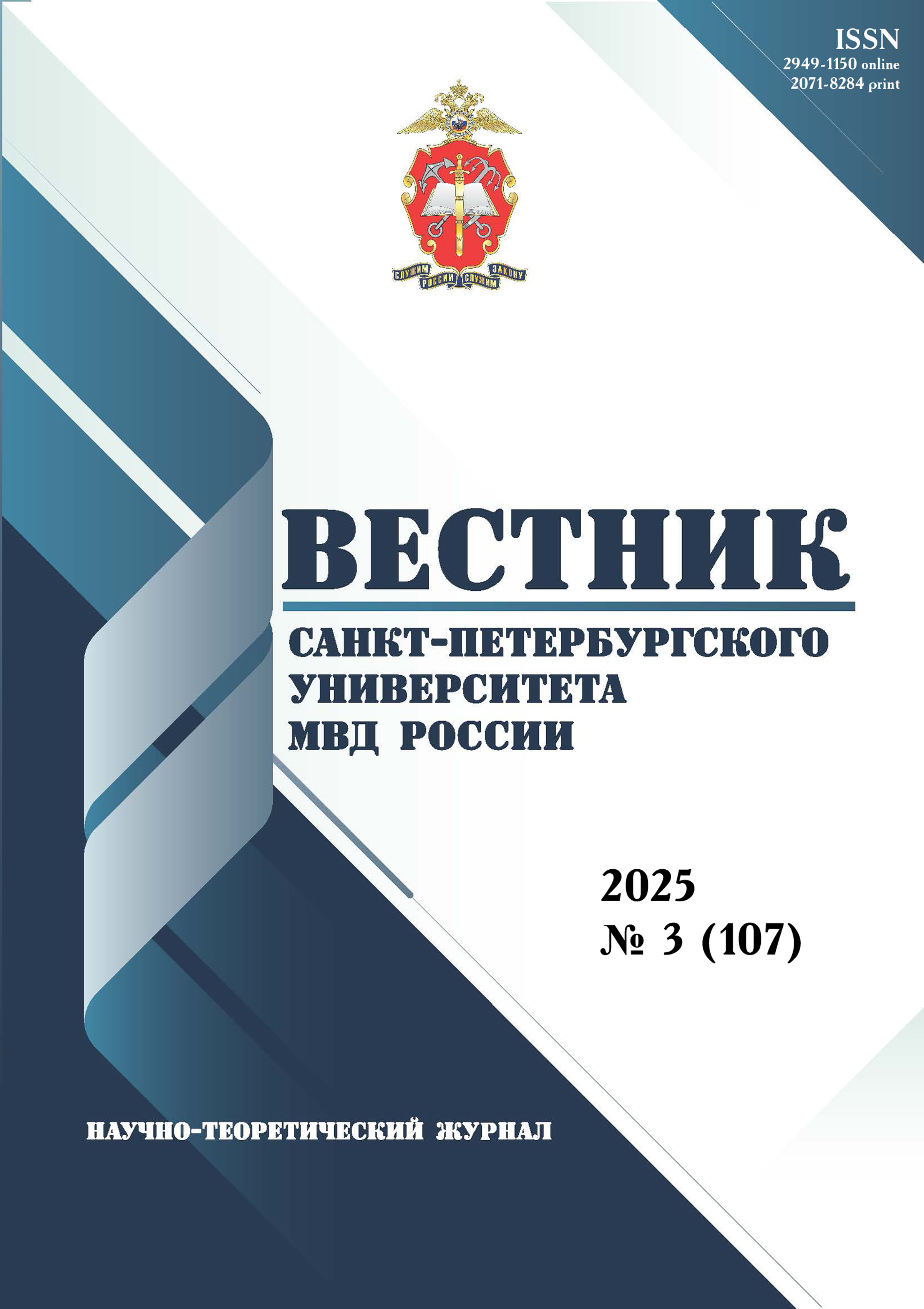employee
Omsk, Russian Federation
UDC 342
Introduction. Under modern conditions of globalization of the information space generated by digital technologies, network resources are used everywhere as a tool for implementing the “culture of cancellation” (cancelling) as a modern political and cultural form of state or public censure of individuals and legal entities aimed at boycotting and refusing to recognize the results of their creative activity. Canceling, being an extralegal way of public restricting the constitutional rights and personal freedom, is not directly prohibited by the legislation of the Russian Federation. In this regard, in order to bring the public law legislation of the Russian Federation in line with the realities of illegal restriction on cultural rights and freedoms of citizens, the author sets the task of theoretical understanding the phenomenon of “culture of cancelling”, appealing to its constitutional, legal, cultural, political and technological aspects. Methods. During the study, approved methods within the bounds of legal science were used, including general methods of research, formal-legal and sociological methods, as well as structural and systematic approaches. Results. Based on the conducted research, the author substantiates the theoretical propositions on the content of the concept of “culture of cancelling”, the political, ideological and private levels of the application of cancelling, as well as on the peculiarities of the influence of digital technologies on the interaction of actors and objects of the action of “culture of cancelling”. Special attention is paid to the constitutional and legal status of the individual who has become the object of influence of the phenomenon under consideration. The conclusion about the anti-constitutional foreign and domestic practice of “culture of cancelling” is substantiated. Proposals have been made to improve the legislation of the Russian Federation on culture in terms of the inadmissibility of the dissemination of cancelling in order to exclude forcibly the scientists and cultural figures from the Russian and international cultural space.
culture of cancelling, cancelling, digitalization, the Constitution of the Russian Federation, the cultural rights and freedoms of a person and citizen, freedom of creativity, the right of everyone to participate in cultural life, discrimination of citizens, cultural identity
1. Shutova V. N. Svoboda tvorchestva v sovremennoy Rossii: konstitucionno-pravovoy aspekt / Problemy sovremennogo zakonodatel'stva Rossii i zarubezhnyh stran : materialy VI Mezhdunarodnoy nauchno-prakticheskoy konferencii, g. Irkutsk, 8 dekabrya 2017 g. : v 2 t. / otv. red. S. I. Suslova. Irkutsk : Irkutskiy institut (filial) VGUYu (RPA Minyusta Rossii). 2018. T. 1. S. 152–156.
2. Nikishov A. B. Pravo na svobodu tvorchestva v Rossiyskoy Federacii : monografiya. Moskva : Prospekt, 2019. 64 s.
3. Hohlova U. D. «Kul'tura otmeny» – princip vzaimodeystviya v sovremennom internet-prostranstve / Cifrovaya pedagogika: ot didaktiki k pedagogicheskomu dizaynu : sbornik statey Mezhdunarodnoy nauchno-prakticheskoy konferencii, g. Ekaterinburg, 31 marta – 1 aprelya 2023 g. Ekaterinburg : Izdatel'stvo Ural'skogo gosudarstvennogo universiteta, 2023. C. 96–107.
4. Dubinina I. I. Obscheteoreticheskie osnovy kul'tury otmeny / Menyayuschayasya kommunikaciya v menyayuschemsya mire : materialy XVII mezhdunarodnoy nauchno-prakticheskoy konferencii, g. Volgograd, 7 fevralya 2024 g. Volgograd : Izdatel'stvo Volgogradskogo instituta upravleniya – filiala RANHiGS, 2024. S. 28–30.
5. Bylevskiy P. G., Cackina E. P. Fenomenologicheskiy analiz yavleniya «kul'tura otmeny» // Vestnik Moskovskogo gosudarstvennogo lingvisticheskogo universiteta. Gumanitarnye nauki. 2022. № 2 (857). S. 162–169. https://doi.org/10.52070/2542-2197_2022_2_857_162
6. Musalitina E. A. Povyshenie akceptacii rossiyskoy kul'tury v usloviyah eskalacii kul'tury otmeny // Uchenye zapiski Komsomol'skogo-na-Amure gosudarstvennogo tehnicheskogo universiteta. 2023. № 2 (66). S. 17–23.
7. Rustamova L. R., Adrianov A. K. «Kul'tura otmeny»: konceptualizaciya ponyatiya i ego ispol'zovanie vo vneshney politike // Polis. Politicheskie issledovaniya. 2023. T. 32, № 4. S. 37–53. https://doi.org/10.17976/jpps/2023.04.04
8. Salieva L. K., Arutyunova-Yastrebkova E. V., Ceppi A. «Otmena russkoy/rossiyskoy kul'tury»: kul'tura otmeny ili antibrending Rossii? // Rossiyskaya shkola svyazey s obschestvennost'yu. 2023. № 30. S. 44–72. https://doi. org/10.24412/2949-2513-2023-30-44-72
9. Vertiy Yu. M. Ponyatiya zabveniya i kul'tury otmeny v kontekste issledovaniy pamyati // Obschestvo: filosofiya, istoriya, kul'tura. 2024. № 9. S. 63–68. https://doi.org/10.24158/fik.2024.9.9
10. Kotunova O. V. Kul'tura otmeny v strukture memorial'nogo diskursa novyh media: kriticheskiy analiz // Galactica Media: Journal of Media Studies. 2024. T. 6, № 1. S. 188–201. https://doi.org/10.46539/gmd.v6i1.446
11. Vinogradov V. A. Analiz fenomena «kul'tura otmeny» kak instrumenta regulirovaniya obschestvennyh otnosheniy // Zhurnal rossiyskogo prava. 2023. T. 27, № 3. S. 17–30. https://doi.org/10.12737/jrp.2023.026
12. Lisica K. E., Turkulec V. A. «Kul'tura otmeny» kak forma proyavleniya stigmatizacii // Gumanitarnye, social'no-ekonomicheskie i obschestvennye nauki. 2022. № 6. S. 107–110. https://doi.org/10.23672/l9940-2233-9740-s
13. Diskin E. I. Problema «Cifrovoy otmeny» grazhdan Rossii // Trudy po Intellektual'noy Sobstvennosti. 2024. T. 50, № 3. S. 39–48. https://doi.org/10.17323/tis.2024.22297
14. Podrabinok E. M. «Kul'tura otmeny» i dostoinstvo lichnosti // Permskiy yuridicheskiy al'manah. 2023. № 6. S. 271–282.
15. Usenova M. B. Svoboda slova i kul'tura otmeny / Aktual'nye voprosy gosudarstva i prava: problemy i perspektivy sovershenstvovaniya : sbornik materialov mezhdunarodnoy nauchno-prakticheskoy konferencii, posvyaschennoy 100-letiyu akademika S. Z. Zimanova, g. Almaty, 30 marta 2021 g. Almaty : Centr operativnoy pechati, 2021. S. 195–198.













